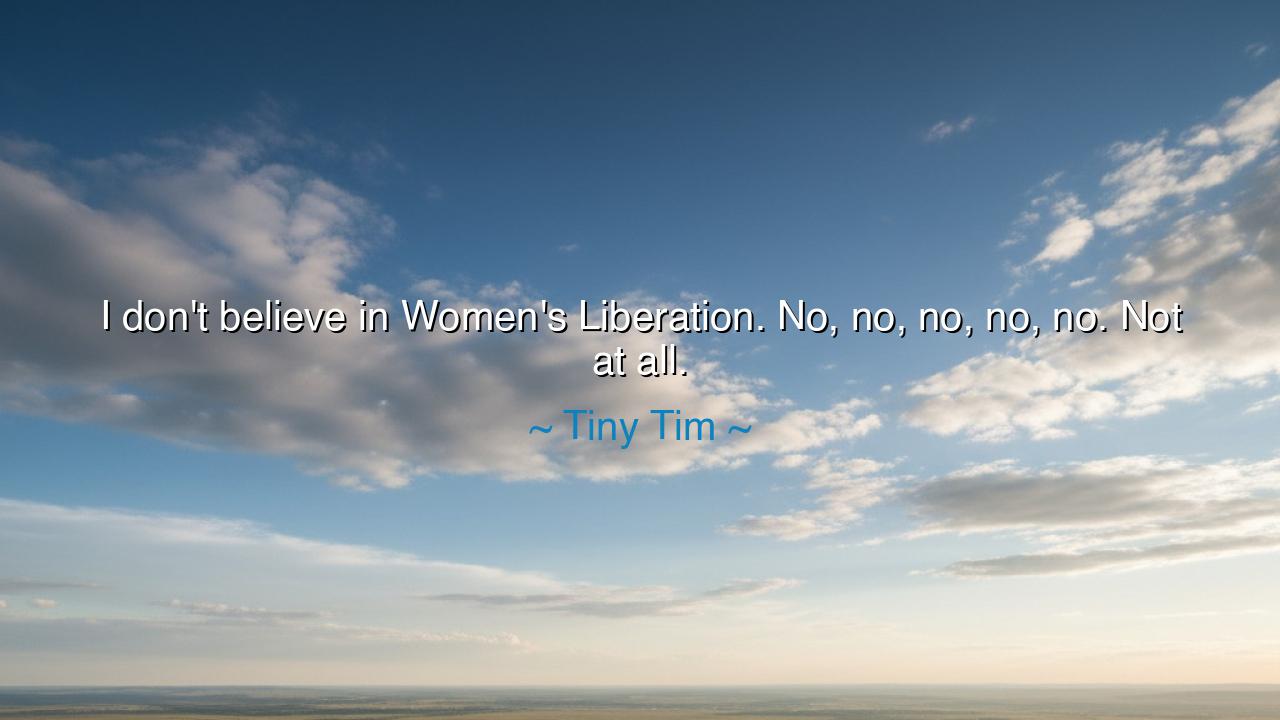
I don't believe in Women's Liberation. No, no, no, no, no. Not






Hear, O listeners of truth, the strange and unsettling words of Tiny Tim: “I don’t believe in Women’s Liberation. No, no, no, no, no. Not at all.” These words, spoken in an age when women were rising to claim their rightful place in society, reveal not only his personal resistance but also the deeper struggle of humanity when faced with the upheaval of tradition. For Women’s Liberation was not merely a movement of politics, but a storm that challenged centuries of custom, shaking the roots of power and expectation.
The denial—“no, no, no, no, no”—is more than repetition; it is the echo of fear. For many men of his time, liberation meant the unraveling of a world where roles were fixed, where women were confined to silence, and men held dominion unquestioned. To reject liberation was to cling to the old order, even as it cracked beneath the weight of justice. His words, though narrow in vision, stand as a testimony to the resistance every revolution encounters.
Yet history shows that the cry for freedom cannot be silenced. Consider Emmeline Pankhurst and the suffragettes of Britain, who endured prison, hunger strikes, and scorn, because men in power said “no” again and again. But each denial only strengthened their cause, until at last their courage forced the world to say “yes.” The more the old order resisted, the more inevitable the triumph of liberation became.
The tragedy of Tiny Tim’s rejection is that it echoes the fear of countless voices before him. When the enslaved cried for freedom, many said “no.” When workers demanded fair wages, many said “no.” Yet in every age, the “no” of resistance is eventually drowned out by the thunderous “yes” of justice. His words, then, are not only his own—they symbolize the eternal clash between those who cling to comfort and those who fight for freedom.
Therefore, O children of the future, let this be your wisdom: liberation will always meet denial, but denial cannot halt the tide of time. Tiny Tim’s “no” is the cry of the past; the rising voices of women, and of all oppressed, are the song of the future. The path of justice is long and bitter, but it bends ever toward freedom, and no denial, however loud, can silence it forever.






AAdministratorAdministrator
Welcome, honored guests. Please leave a comment, we will respond soon